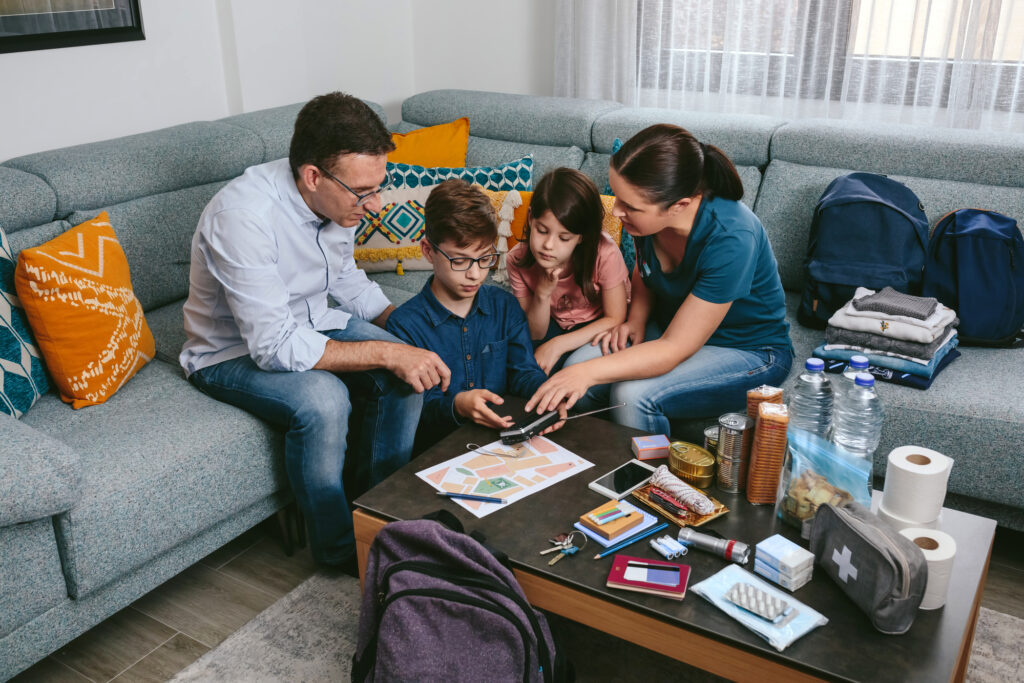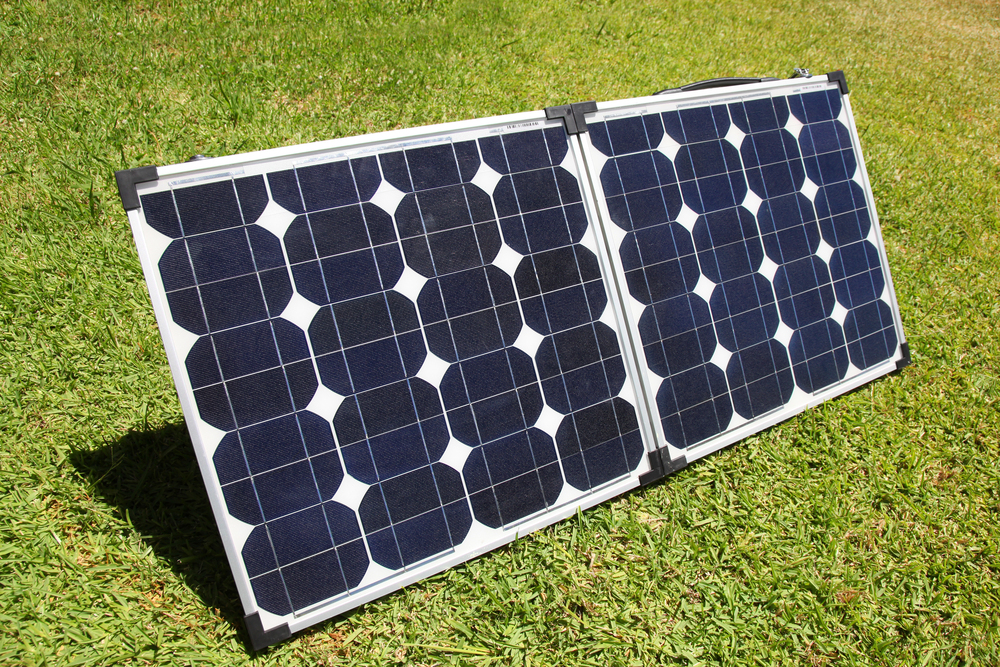Even if they don’t know they’re prepping.
I’m a member of a lot of prepping forums, and one of the most poignant type of posts that I see -and this comes up again and again – is: “My spouse doesn’t want anything to do with prepping. She/he thinks I’m crazy/paranoid/ridiculous.” Or, “My kids don’t want anything to do with any survival planning.” If SHTF, you want to be able to protect not just yourself, but your loved ones. So how do you get your family on-board with prepping?
In a TEOTWAWKI situation, there are so many reason why you’re going to need to have the whole family involved, and trained to deal with any number of possible scenarios.
1.) Safety in numbers. You may need to take shifts watching out for possible intruders. You may both need to be defending your house.
2.) Two is one, one is none. That’s a common prepper acronym. It means that items that you depend on will break down, they will fail, they will get lost…if you only have one gun, one generator, one flashlight, etc., you’re taking a big risk. This applies to people too. What if one of you gets sick? What if one of you dies? The other one needs to know how to do everything that needs to be done in a dangerous, grid-down, post-apoc world. That sounds harsh, but prepping is all about acknowledging harsh realities.
3.) If an emergency hits, you all need to be prepared to act quickly and without panicking. If everyone has practiced for this scenario many times and are comfortable doing things like grabbing a backpack and heading out the door, or quickly locking down and securing your house, it will be a lot easier for everyone to keep their heads when the fecal matter comes in contact with the oscillating blade.s (SHTF).
Why Prep At All?
If you are pretty sure something bad is coming, then of course you want to get your family on-board with prepping. There are a wide range of disasters and things that you might think we need to prep for. You, personally, may believe that a full on, permanent, grid-down scenario is coming soon. You may anticipate a very wide scale, devastating, terrorist attack, or an enemy invasion, or a civil war.
I personally believe that civil war or total economic collapse is not off the table. The average life of an empire is about 250 years and America was founded in 1776. We are now 248 years old. There are numerous reasons an empire might fall, including when leadership gets so corrupt that it’s hard to inspire patriotism, combined with too much prosperity to the point where people get complacent and lose their fighting edge. (Sound familiar?) “Hard times create strong men, strong men create good times, good times create weak men, and weak men create hard times,” to quote the novel The End by G. Michael Hopf.
So if you believe that things might get that bad, then an intelligent response would be to try to retreat from cities as far as possible while you still can, and join or build a community of like-minded people that you can get along with, for mutual support and defense.
However, your spouse, or your kids, may think this is going way too far. They may refuse to leave the things they’ve gotten used to – comforts of the city or the suburbs, their friends, other family members, their jobs, their school, their college, and so on, for something that they see as a distant and unlikely possibility.
So what then? If they are so strongly opposed, how can you get your family on-board with prepping?
Start Small With Your Preps
If your family is extremely resistant, you may not be able to prep to the level that you would prefer, but there’s quite a bit that you can do to keep them safe anyway.
Even if your spouse does not believe that this country will ever have a lengthy, widespread disaster and a collapse of law and order, they can’t deny the occurrence of natural disasters like earthquakes, hurricanes, blizzards and tornadoes. They can’t deny that school shootings, and mass shootings in public places, are increasingly common these years. The same goes with your kids.
So your spouse may not be ready for a full-on retreat to a remote area, it’s hard to imagine any parent refusing to come up basic safety plans to keep their children safe.
And these plans are part of not just prepping, but prudent parenting.
You can start by making plans for the kind of emergencies and disasters that do happen on a regular basis all across the country.
Make A Plan For Not Being Able To Get Ahold Of Each other
If you’re talking to your spouse who’s reluctant to start prepping, it’s helpful to cite real world examples rather than theoretical ‘what-ifs’. What would happen if the children were at a friend’s house and the country experienced the kind of widespread cell phone outage that hit AT&T, Verizon and T-Mobile in February 0f 2024? Does your child know how to get back to your house? If it’s in the same neighborhood, can you start practicing with daily walks?
What would their friends’ parents do in a situation like that? It’s smart to have a plan that you can communicate to the adults in charge. They need to know your home address, and they need to know what to do if for some reason they can’t get ahold of you. You can give them the name and home address of someone else, like grandparents or a trusted neighbor who is aware of this plan, where your children could be dropped off if you could not be reached.
Make A Plan For What Happens If Your GPS Stopped Working
This happens to our family a lot because we live in a rural area and we’ll be driving down the road and the car GPS just suddenly thinks we’re in the middle of the woods. Or maybe my GPS is just getting old and needs to be replaced. Anyhoo…
Make sure there are paper maps in your car, and also, encourage everyone in the family to learn to navigate – gasp – without a GPS.
Teach your kids to learn how to read maps. Again, a spouse can hardly object to basic common sense like this.
Teach your children how to navigate by looking for landmarks, and to read the position of the sun in the sky. Do you live north of town, south, west, east? Point out landmarks that are on your way home from work, from school, from a friends house, etc. You can make a game of it for the kids. They can win prizes for being able to tell you how to get all the way home from the supermarket, from school, etc.
Make A Plan For Economic Upheaval
Prepping doesn’t just mean preparing for societal collapse. In the event of economic upheaval, you would want to have not just money saved up, but food. It makes sense to start practicing frugality now, and to have a food supply that could last you at least a few months if you and/or your spouse were no longer bringing home a paycheck.
Hopefully you’ll never need it, and you’ll keep earning great money right up until retirement, but company loyalty is a thing of the past, and economic upheavals are reality, and the cost of everything is soaring.
Buy an extra pair of glasses online cheap, while you still can, and try to convince your spouse to do the same. That’s not paranoia – that’s just being practical.
Make sure that you have an extra month, at least, of any necessary medications. Have what you need on-hand so if finances get tight, you can dip into the stockpile rather than going hungry or running up credit cards.
And, while you’re doing that, make sure you are stockpiling food that you and your family actually enjoy, and rotate the food regularly, using up the older stuff before it expires. (Food expiration dates don’t automatically mean food has gone bad, but over time foods lose flavor and nutritional value.)
Buying food that everyone likes goes a long way to convince your spouse that it makes sense to buy it in the first place. In the past, I bought food that I didn’t like,
Make A Plan For Losing Your Power For Days Or Weeks
When discussing this with your spouse, you can point out that storms and weather events happen all over the country, throughout the year. Having a generator could be an absolute life-saver, as well as saving you a fortune in lost food from your fridge and freezer. If your spouse won’t go all in on a whole-house generator, or you can’t afford one, you can buy a smaller portable generator and hook it up to keep your fridge and freezer going and keep your water running.
Just remember to read the instructions and follow all safety rules. You can not have a generator inside your house because it releases potentially deadly fumes.
You’d also want to have some emergency water storage for your family and any pets that you might have. Again, this isn’t like retreating to a cabin in the woods. Your spouse doesn’t have to think that agree that TEOTWAWKI is coming, to acknowledge that having a supply of food and water on hand is a good idea.
What About Self-Defense In a SHTF scenario?
I advise everyone to have the ability to defend themselves and their family.
It would be much better if your spouse also learned how to handle a gun and went to the gun range with you to practice, but if they won’t, you still have the right, and I think the obligation, to go on your own. Store all guns safely, especially if you have children.
If TEOTWAWKI happens, at least one of you will be able to defend the family, and at that point, they can’t really argue with you that learning how to safely and accurate handle a weapon would be a good idea.
If you can convince them to learn how to hunt, without it being connected to SHTF, you’re golden. If you can get your kids interested in archery, that’s also a good thing. Bows and arrows are silent, unlike guns, and that could be a life-saver in an SHTF scenario.
Getting your kids involved in martial arts classes will get them thinking about how to defend themselves, and give them the physical skills to do so.
What If Your Spouse Flat-Out Refuses to Prep?
It depends on how much marital discord this is causing, but my belief is that everyone has their own interests and hobbies, and doing things like learning to navigate without a map, and building up a few months worth of food and water supplies, and having extra medication on hand, should not be a problem for your spouse.
It’s possible you may have to do this on your own, and if it’s causing stress, I’d recommend reaching an agreement to just not discuss it with them. They have their beliefs, and hobbies, and things they like to spend money on; you have yours.
If you want to get your family on-board with prepping, and your spouse just won’t do it, you may want to consider marital counseling, or meeting up with your pastor to talk about it. It’s very important to you, and one person doesn’t have the right to shut down your ability to protect your family, but the subject has to be approached in the right way, and you may need outside help with that. If you can at least come to an agreement on the basics we’ve discussed in this post – learning basic navigation, having a stockpile of food and water, your right to go to the gun range – you’ll be in a safer position than you would without these basic preps.
And finally…how much do you need to share with your spouse? Well, that’s a tough one. I don’t advocate keeping secrets, but you don’t necessarily need to announce it every time you’re buying food that lasts a long time. And when you do things that are helpful from a prepping sense, like learning how to get home without a GPS, you don’t necessarily have to announce that you’re doing it because you’re prepping.
This isn’t a perfect situation and there aren’t perfect answers to this dilemma, but we don’t live in a perfect world, and even if you can’t figure out how to get your family on-board with prepping, you can sneak in plenty of preps that will keep them safer, without them even noticing.






